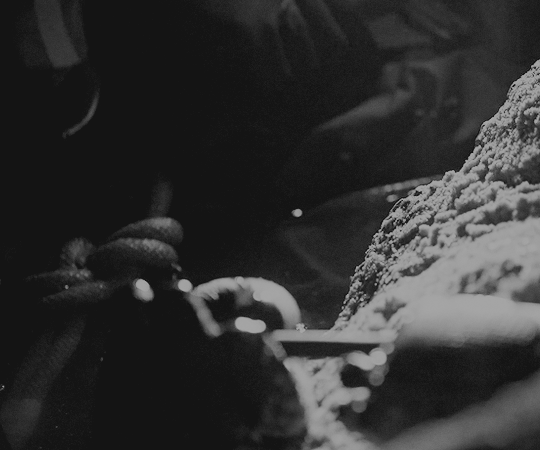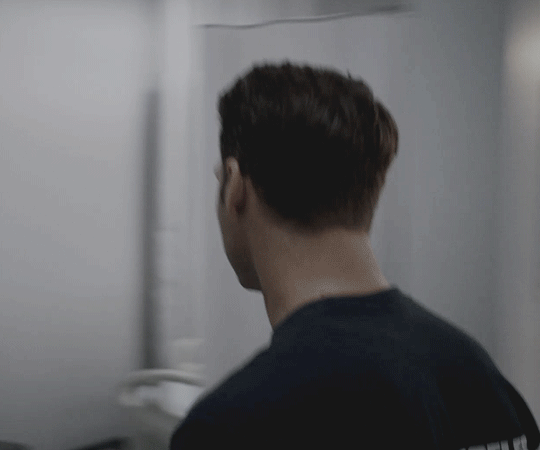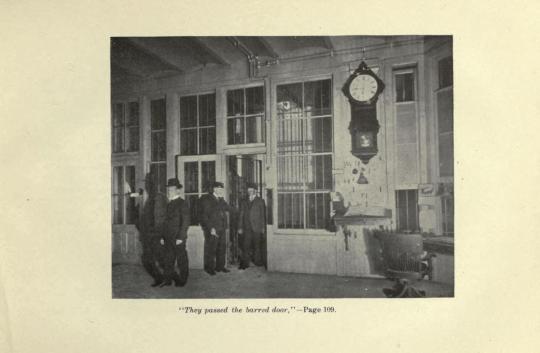#Prisoner Release
Text
Airhead (Ahed) Tamimi explains how tough things were for her in Israeli prison recently.
She mentions the fun and parties with singing and dancing that they had.
163 notes
·
View notes
Text
🇵🇸🇮🇱 MORE FOOTAGE OF THE WELCOMING HOME OF PALESTINIAN PRISONERS, BEING DENIED SUCH FOOTAGE FROM MAINSTREAM WESTERN MEDIA
Palestinians warmly welcomed the freed prisoner, Adam Abu Hamed.
Adam returned to his home in the village of Sur Baher in occupied Jerusalem after his release from occupation prison.
#source
@WorkerSolidarityNews
#prisoner release#prisoner swap#prisoner exchange#west bank#occupied palestine#palestine#palestine news#palestine war#palestine update#gaza#israel#israel news#israeli apartheid#israeli occupation forces#israeli occupation#gaza news#war#news#wars#war news#politics#geopolitics#world news#global news#international news#breaking news#current events#middle east#west asia#hamas
92 notes
·
View notes
Text

How to Start a Cold War, a counterpart chapter: https://archiveofourown.org/works/35818393/chapters/112445416…
All my love to @photonzeroinfinity for the betawork and to
@artofcrumbs for making my Dramione cuddle dreams come true!
#dramione#draco#draco malfoy#hermione#hermione granger#dhr#draco x hermione#post war#azkaban#prisoner release
184 notes
·
View notes
Text
According to the Ultrapal news site, one of the negotiators for a ceasefire in Egypt has released details of Israel's seven ppoint offer for a humanitarian truce.
The head of international relations of the PFLP, Maher Al-Taher, was apparently there and revealed these details about the Israeli offer, which - if true - appears to be way more generous than one would think:
First: a two-week calm, which can be extended for several more days.
Second: A deal to exchange civilian prisoners held by the resistance in Gaza along with female captive soldiers, in exchange for a number of Palestinian prisoners to be agreed upon later.
Third: Israeli withdrawal from some areas of the Gaza Strip, and maintaining a barrier separating the north of the Strip from its south, with a security belt in the northern regions.
Fourth: Introducing relief aid, details not specified.
Fifth: The return of residents to the northern Gaza Strip and allowing relief and humanitarian institutions to set up tents and provide services.
Sixth: The release of key prisoners, including the Secretary-General of the PFLP, Ahmad Saadat, and a member of the Fatah Central Committee, Marwan Barghouti. Barghouti is the murderer who is by far the most popular Palestinian public figure; he would win any election if held today. Saadat headed the PFLP during some of the worst terror attacks and was directly involved in the assassination of Minister Rehavam Ze'evi.
Seventh: Preparing for the second stage, negotiating for all the prisoners, and withdrawing from Gaza later.
Hamas rejected the proposal completely, claiming that it will only accept full Israeli withdrawal from Gaza, a permanent ceasefire, all prisoners for all hostages - essentially, full victory.
9 notes
·
View notes
Text
What was the licensing system for?
"Although the repatriation of the licensing system following the end of transportation seems to have been, at least in part, an unthinking policy reflex, as the system persisted through the nineteenth century, it appears to have offered three distinct advantages to the authorities.
First, it reduced costs to the extent that it made the convict prison system more affordable. At between £32 and £42 a year, the average cost per convict was remarkably stable between 1856 and 1914. This cost approximately doubled in the wake of World War I, but it was only in the 1930s – a time when the convict population was much smaller – that it rose significantly. After the prison closures of the inter-war period, the cost was, on average, £140 per convict. The total cost of the system was, of course, affected by the number of people consigned to convict prisons. Although there were fluctuations in numbers and therefore costs, the system as a whole was expensive. Between 1856 and 1940, the average cost of the convict prison system was £218,000 per year. By the start of World War II, the cost of the overall system was still £240,000 per year, not far off from the £226,000 it had cost to run in 1856. In the post-World War II period, the cost rose steeply once more. The prison system has always been (and continues to be) very expensive. However, its costs were considerably lightened by the licensing system. Without a licensing system, the average daily prison population would have increased by one-quarter to one-third, as would the financial costs of running the convict prisons.
The licensing system operated like a pressure valve that made the convict prison system manageable and able to operate at a much-reduced cost. Between 1870 and 1885, when the long stretches handed to people sentenced under habitual offender legislation inflated the convict population, the licensing system saved the authorities close to one million pounds. After 1882, convict establishments largely became net exporters of prisoners, and the licensing system continued to save a considerable annual sum for the prison estate. The proportion of a penal servitude sentence that needed to be served before release on licence was formalized in 1853, long before the prison crises of the next three decades, but the impact of reducing the number of licences granted between 1856 and 1859, and the concomitant rise in the prison population, must have been a lesson for the authorities. The system could be viewed as an elegant mechanism for the authorities, allowing them to reduce costs whenever the system became bloated with convicts by releasing more and more men and women on licence. The system had not been conceived as a cost-saving device, but it was quite evidently operated in that way, making the convict prison system as a whole financially viable.
Second, the promise of a licence being dangled over prisoners’ heads helped to keep order inside the prisons. In Walls Have Mouths, former convict McCartney wrote that ‘a good prison record means that the convict is at the beck and call of every jailer in the prison, that he has to suffer every indignity and injustice in silence, that he cannot associate himself with any complaints, and that he has to do whatever is convenient to the warders, otherwise he gets a bad report, and that report may militate against him to the extent of an extra five years in prison’. The explicit and implicit threat of the loss of remission was one way of keeping discipline in a prison, especially as it would have inculcated self-government among convicts.
Lastly, the licensing system allowed the prison authorities to put right obvious errors that might have undermined the legitimacy of the criminal justice system. This was especially important – or, indeed, may have only been important – when glaring miscarriages of justice attracted attention from the media or from politicians. For example, George Whitehood and Charles Holden were charged with the arson of three haystacks at Hayes on 25 October 1869. In court, Holden stated that ‘he would rather be in prison than not, walking about with nothing to eat’, and he received a ten-year sentence at the Old Bailey on 22 November 1869. Whitehood, however, who may well have been in the same state of poverty, desperation, and disillusionment as Holden, had difficulty proving that he had been anywhere near the crime scene. He had only been liberated from Wandsworth Prison at 9.30 a.m. on the day of the fire and could not possibly have walked to Hayes (a five-hour journey) by the time the fire was started (just after midday). The judge at the Central Criminal Court believed Whitehood had confessed to the crime in order to be transported – if Western Australia was no longer an option, perhaps he was thinking of Gibraltar (where penal servitude continued until 1875), although the judge seems to have been unclear about the options. Whitehood’s case was taken up by the governor of Brixton Prison and the Home Office, who were on firmer footing in correcting the error through the licensing system. Whitehood, having served less than a year of his ten-year sentence, was given a licence in 1870. ‘If he commits another offence it will subject him to imprisonment in, and not removal from this country,’ stated the governor. Whitehood never reoffended, but without the intervention of the prison authorities he would have served another six years in prison before becoming eligible for release on licence. It should be noted that Whitehood’s case had been taken up by MPs in the House of Commons, no doubt putting pressure on the Home Office to act. The number of highly visible cases were few, and therefore one assumes that the number of ‘corrections by licence’ were similarly few.
For most people on licence, it served one very real and valuable purpose: it got them out. As the outpouring of emotion at the beginning of this chapter from people about to be released from prison attests, this purpose should not be underestimated. However, there was not much support with regard to rehabilitation while on licence, and, indeed, there were many barriers to reformation that the system itself put in the way of anyone attempting to ‘go straight’. The authorities were more than aware of the stigma attached to those who had been in prison. The Penal Servitude Acts Commission of 1863 reported that it was ‘far from confident that persons in this condition would find it easy to obtain an honest livelihood. Men with characters branded by their having been convicts are exposed to insuperable disadvantage, in the strong competition for employment.’ This issue was also a topic of considerable discussion by the Kimberley Commission fifteen years later. Several ex-convict witnesses who gave evidence objected to police supervision on the grounds that police officers informed their employers of their status as ex-prisoners and this resulted in the termination of their contracts. Representatives of the Royal Discharged Prisoners Aid Society also put forward a few examples in which this had been the case. A number of male and female convicts in our study also claimed to have experienced this problem. The commission recommended improving the system of supervision in this regard, arguing in line with the 1863 commission that
no time should be lost … in improving the present system. We fear that supervision, if left in the hands of ordinary police constables ... will tend more and more to become a mere matter of mere routine, harassing to the men who are subjected to it, and affording no real security to society against the criminal classes.
However, the licensing system did reduce the period in custody and thereby gave people more time to do the ordinary things that other Victorians and Edwardians did: form relationships, marry, settle down, and have children; find work and build a career or at least have a steady form of income; build relationships and put down roots in a neighbourhood after establishing a secure and stable residence; and take responsibility for one’s own actions, rather than being told what to do and when to do it. All of this helped to build maturity and foster self-reliance and responsibility. These structural factors operating at the individual level encouraged rehabilitation and desistence from offending, but they took time – time that was given back to convicts through the granting of a licence. Although it offered significant financial and operational benefits to the convict prison system, the licensing system was of no intrinsic value to individual convicts, except as a temporal window that allowed more supportive processes to get to work beyond the prison gates."
- Helen Johnston, Barry Godfrey and David J. Cox, Penal Servitude: Convicts and Long-Term Imprisonment, 1853–1948. Kingston and Montreal: McGill-Queen’s University Press, 2022. p. 147-151
#convict prison#uk prisons#parole#parole system#prisoner release#convict license#penal reform#sentenced to the penitentiary#prison discipline#penal servitude#academic quote#history of crime and punishment#reading 2023#prison administration
4 notes
·
View notes
Text
While palestianians are being released from wrongful imprisonment and torture, it's a zero-sum because of how many palestinians are being abducted by the IDF and Israeli police during the truce to replace the hostages they've released.
If one "side" can abduct and capture civilians at it's leisure and the other willingly releases it's prisoners for a few days of illusory respite from carpet bombings and destroyed hospitals, that's not war or conflict. That's genocide.
This cannot go on.
#palestine#israel#genocide#prisoner release#human rights#right wing degeneracy#free palestine#from the river to the sea
9 notes
·
View notes
Text

3 notes
·
View notes
Text
why this. Biden America filled with homeless, crazy criminals released to society where non stop crime is on the loose. God help us all
youtube
#Prisoner release#crazies reintegrated to society#mental illness#worst usa president#presidential election#Youtube
0 notes
Text
U.S. Funds May Support Palestinian Terrorists, Claims Expert
According to an expert, the Palestinian Authority could be using U.S. funds to pay salaries to convicted terrorists and their families. This concerning revelation comes after the release of Palestinian prisoners in a swap deal with Hamas. Explore the latest news on the potential funding of terrorism.
0 notes
Photo







eddie diaz + faceless °2
#eddie diaz#eddiediazedit#911#911 abc#911edit#*edit#*gif#this has been sitting in my drafts since 2021 💀#I'm releasing it into the wild be free from the prison of my drafts page
1K notes
·
View notes
Text

you are free now. freer than you've ever been.
it's scary, huh?
you can drink, you can swear, you can be gay if you want.
you can find out being gay isn't really your fit, but you were free to try.
or maybe it is, and now you can kiss anyone.
you can try on clothes they never let you before.
you can be angry, you can carry a knife.
you can be loud, you can carry flowers.
you can be mean. you can be kind. you can deny god and all He was.
you can spend a quiet evening at home, you can have sex.
you can love yourself and hate yourself and do anything.
you don't have to give a single shit about "family values."
you can be anything.
you are free.
you are freer than you've ever been.
freer than they ever wanted you to be.
[ID: A animation of Mickey Mouse staring forward above the camera with a cloudy blue sky in the background, the lines moving slightly as the sun reflects off his pupils. His expression is awed and maybe a little frightened. He has white shorts and a black and white tall cap. End ID.] courtesy of @describe-things
#mickey mouse#public domain#steamboat willie#i was drawing a silly little animatic and the next thing i knew#i was comparing the release of mickey from his prison to my own from the church#and how both the church and d*sney are similar in so many ways#and how he's now as free as i am. and we are free to be friends now#it's not that deep TO YOU. to me it is.
2K notes
·
View notes
Text
🇵🇸🇮🇱 🚨 RELEASED PRISONER DESCRIBES THE HORRIBLE TREATMENT OF PALESTINIANS IN ISRAELI PRISONS
Freed Palestinian prisoner Ruqaya Amr on the treatment of Palestinians in Israeli prisons at the hands of the occupation authorities:
"The occupation treated us harshly, starving us, isolating us, and cutting off our water... Our joy in freedom is diminished because of the tragedy of our people in Gaza, and we honor these great sacrifices of our people."
#source
@WorkerSolidarityNews
#prisoner exchange#prisoner release#hostages#gaza#gaza strip#gaza news#gaza war#gaza update#palestine news#palestine#occupied palestine#israel#israeli occupation#israel hamas war#israel news#israeli apartheid#israeli war crimes#war crimes#crimes against humanity#politics#geopolitics#middle east#war#wars#war news#war update#news#world news#breaking news#current events
62 notes
·
View notes
Text
I heard it through the grapevine that Cody and Obi-Wan are kissing right now. If true please send photo evidence.
#codywan#lasagna rambles#i accidentally saved this to my drafts instead of posting immediately with all my other sleep deprived text posts#i am releasing it from prison#this is so fucking funny
611 notes
·
View notes
Text

"Nevertheless, the system persisted, and without basic changes. For all the public clamor and widespread dissatisfaction, parole survived relatively unscathed. How could failure and unpopularity have had so little impact on the continuity and structure of policy? The answer is to be found, first, in the functions that the program did fulfill for several types of officials within criminal justice. The day-to-day advantages that they gained from administering the system far outweighed (for them) its apparent defects.
The most vigorous champions of parole, those who gained the most from its operation, were the prison wardens. Their support was critical to the survival of the system and it was unwavering, despite some gradual diminution of their authority over parole decisions. Before 1925, wardens dominated the parole boards. They usually served as one of the three members; the meetings were held on their grounds, at the prison; and at least at the start, the inmate’s record of institutional conduct probably counted for most, if for no other reason than as a carry-over from the time when parole was defined as a reward for the good inmate. After the mid-1920’s, however, the parole system built up its own bureaucracy. It became more independent of the department of corrections and moved away from the warden’s direct control. He no longer served on the committee, the final decisions were more frequently made in the state capital, and institutional behavior ranked well behind an inmate’s prior record in importance as a release consideration.
As Warden Lewis Lawes of Sing Sing told a New York investigatory committee:
‘I have never attended a meeting of the Parole Board. I have never been requested to. . . . I did attempt at first to make a good warden’s report and recommendation; but when I found they didn’t read it or pay any attention to it I will admit my efforts became very perfunctory.’
The Wilcox study in Pennsylvania found that “good conduct in prison does not inevitably lead to parole, nor do minor disciplinary infringements always prevent release. Eighty percent of those paroled at the minimum had perfect prison records. But it is also noteworthy that 80 percent of those refused parole had maintained good conduct in prison.” And the Attorney General’s survey cautioned that
Parole should not be used as a device for solving some of the problems of prison administrators. Prison administrators . . . are liable to employ it as a good time regulation or reward rather than as a correctional device.
Nevertheless, wardens had good reasons to continue to support the program and to resolve in their national meetings that parole was “an essential element in protective penology.” Some of them did manage to keep the boards under their sway: in such states as New Hampshire, Connecticut, and New Jersey, the warden still had the most to say about who went out on parole. In many cases, too, a warden could persuade a board to take into account his own prejudices in any one particular instance. Hence, the following dialogue in the Montana parole board meeting:
Case of Fred Albo, a Mexican, was considered.
The Clerk read the history.
Governor: Hold him I think.
Secretary of State: Go to it.
Attorney General: It makes no difference if he is a Mexican.
Clerk: The Warden hates Mexicans and recommends him. He must be a good man.
Governor: All right, don’t hold him.
(One cannot be certain, of course, whether the warden was very impressed by this inmate or whether he simply wanted to get rid of a noxious Mexican.)
More important, whatever the boards assumptions about the significance of the prior record, the warden could thwart the opportunity for release for any especially troublesome inmate. Boards would not pay attention to minor infractions or necessarily release someone who minded his own business inside. However, the inmate who was far out of line would suffer, and wardens as well as convicts understood this. Wardens, or their principal keepers, were very often present throughout board deliberations; but at any rate it was they who made up the dockets and so they had ample opportunity to tell the board about the bad cases. In Pennsylvania, for instance, the inmate who “carried coffee from the mess hall, cursed an officer, refused to enter his cell, and stole and drank shellac,” did not win release at the minimum. In effect, wardens had a veto power, and their ability to blackball was sufficient to serve their own disciplinary ends well.
“Complex and difficult as is prison management under the best conditions,” insisted one Indiana official, “it would be immediately more difficult without the parole law. The prisoner looks upon the parole as the reward for good conduct and steady industry and does his best to earn it.” Or, as Pennsylvania’s Wilcox concluded: “The power possessed by the state under parole laws . . . provides penal administrators with a club which is even more effective than the old ‘good time’ laws in inducing internal discipline. Prison managers generally favor parole for this reasons.
Moreover, wardens found themselves locked into the system once it was in operation. They were compelled to favor its perpetuation for the critical reason that any talk of a diminution in the availability of parole (let alone its outright abolition) provoked substantial inmate hostility - and wardens did not enjoy suppressing riots. Under indeterminate sentences, any effort to restrict parole had to mean significant increases in time served. Almost invariably, then, wardens were eager to see more and more paroles granted to keep peace among the inmates. Joseph Moore, chairman of the New York State Board of Parole, complained that wardens were directing inmates’ anger at parole boards and away from themselves. “The Parole Board finds it advisable to hold a large percentage of prisoners beyond their eligibility for release and we have abundant evidence that prison officials disapprove of this. Unfortunately, this feeling whether purposely or not is conveyed to the prisoners and it is permitted to be a general idea among them that so far as the prisons are concerned they would be glad to release them but the hard-boiled Parole Board holds them up.”
In much the same way, the warden of the penitentiary in Washington State kept up a running battle with parole board members. Because they were (in his view) too strict about release, his own job of preserving good order was more difficult. In fact, the warden “usually placed about five or ten men on the Docket who had served a long time, but who had no present chance for release. Why? Because when a ‘con’ has put in a lot of time and is denied any chance for a hearing before the Board, resentment occurs, and if there is enough of that, trouble occurs inside.” That same warden resisted all efforts to abolish parole for three-time losers: “Such prisoners could not be controlled . . . [and prison administration would be impossible.” The warden of the Illinois State Penitentiary at Stateville, to choose one case from many, knew the truth of that argument first-hand: in 1937, responding to a newspaper crusade, the parole board cut back on releases (granting only 3 from 274 applications), and in short order the warden had to contend with a hunger strike. Or, to turn the point around, the warden at Charlestown, Massachusetts, consistently recommended parole “because he expected it to improve discipline. He proved correct in his anticipation as there has not been a riot or outbreak in State Prison since parole went into effect.” In sum, the wardens were parole’s warmest friends. They supported the system and were eager to keep the numbers granted parole as high as possible - always excepting that cult case which had to be made into an object lesson.
Legislative committees investigating parole found the wardens’ conclusions not only well-taken but almost unanswerable. No matter how critical they were of one or another part of the system, they were reluctant to restrict release procedures for fear of undercutting prison officials’ power. The New York Crime Commission, a tough group with little good to say for parole, moved very cautiously for fear of disturbing the wardens’ authority. Not only the wardens but representatives of the state parole board took pains to inform the Commission just how critical parole was to discipline. “It is your opinion,” Senator Caleb Baumes, the chairman of the Commission, asked the head of the parole board, “that you create and maintain a better morale, if you please, amongst the prisoners generally, if they know that system is in vogue?” To which the chairman replied: “Absolutely.” The Commission accepted the argument, and as eager as some of its members were to abrogate the board’s right to release inmates immediately at the minimum, they did not dare do so. “If you tell 3,000 men in the prison,” concluded one of the most law-and-order-minded members of the Commission,
that they are likely to be held from months to five or six years more, you will make a hell on earth of every prison in the State. . . .3000 men expect . . . from all the years of practice by the Parole Board . . . that they will be released at the end of the minimum, and if you tell them that now it is likely or probable that their time will be extended beyond the minimum . . . they are going to insurge and feel vicious, and you can not blame them, no matter how heinous was their original offense.
His conclusion was clear: “If we are to go ahead on any rough and ready method of extending sentences and taking that definite hope away from them, the consequences will be extreme.” True, public opinion (and his own instincts as well) would prefer to “make them serve indefinitely.” But “we cannot do it without smashing prison discipline.” It was this kind of reasoning that helped to preserve parole, no matter how poor its reputation or inadequate its practice.
- David J. Rothman, Conscience and Convenience: The Asylum and Its Alternatives in Progressive America. Revised Edition. New York: Aldine de Gruyter, 2002 (1980), p. 183-187.
Image is from the Handbook of the New York Reformatory at Elmira, showing the parole board finishing a meeting and releasing an inmate - on the left hand side. c. 1916.
#penal reform#progressive penology#progressive politics#rehabilitation#penal modernism#american prison system#penology#parole board#parole#parole system#prison discipline#released from prison#prisoner release#history of crime and punishment#prison administration#academic quote#reading 2023#david rothman#sing sing prison#massachusetts state prison#stateville penitentiary
2 notes
·
View notes
Link
Trump Demands Immediate Release of Jan 6 Defendants after Supreme Court Ruling: ‘Free the Hostages Now’
President Donald Trump has called for the immediate release of individuals arrested over the January 6 protests at the U.S. Capitol in 2021.
#trump 2024#donald trump#trump#releasej6politicalprisoners#releasej6prisoners#supreme court#supremecourt#freethehostagesnow#maga#release j6 political prisoners#release j6 prisoners
604 notes
·
View notes